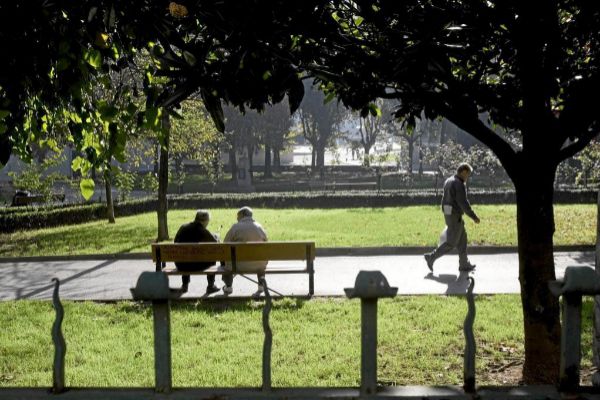- Data: Cancer cases have grown 12% in the last four years
One in two men and one in three women will have cancer in Spain throughout his life. This is guaranteed by the estimates of the Spanish Society of Medical Oncology (SEOM), figures that show clear differences between sexes in the chances of developing a tumor.
But why are men more susceptible to cancer? A team from the Global Health Institute of Barcelona (ISGlobal), a center driven by Caixa, has just found an answer. The key, they say, is on the Y chromosome .
Specifically, these researchers coordinated by Juan Ramón González, head of the Bioinformatics Group in Genetic Epidemiology of the Catalan center, have discovered what are the biological mechanisms that clarify why men have this greater risk with respect to cancer. As they explain, it is due to a loss of function of certain genes located on the sex Y chromosome, which is only present in men.
"The probability of developing cancer increases when the function of six key genes of the Y chromosome is lost," explains González, who clarifies that recent studies had shown that, as they age, some men's cells tend to lose completely. the Y chromosome and that this has a direct relationship with the risk of cancer. However, he adds, "the causes of this relationship were unknown," he continues.
To find the thread that links men with an increased risk of cancer, scientists studied data from approximately 9,000 individuals , analyzing the function of different Y chromosome genes in different types of tumors. When crossing the information, which is published in detail in the Journal of the National Cancer Institute , they observed that the loss of function of six genes (DDX3Y, EIF1AY, KDM5D, RPS4Y1, UTY and ZFY) made a clear difference.
These six genes on the Y chromosome, González explains, are involved in the regulation of the cell cycle and behave in some ways as tumor suppressors. Therefore, when your activity fails, the door to cancer opens more easily. "These genes have a similar copy on the X chromosome. If in addition, the copy of the X chromosome mutates in the same cells, something that is possible, this biological protection against cancer is completely lost," he adds.
"We knew that men not only suffer more from cancer than women, but that they also have a higher associated mortality. And we knew that this is partly explained by the differentiated exposure between sexes to certain environmental risk factors . But we have shown that also There are important biological factors that influence this greater risk, "González says.
As he explains, the cancer risk attributable to this loss of chromosome function "is comparable to the risk attributable to smoking," he emphasizes. In fact, according to their data, in some cases of cancer, such as lung cancer, this deregulation of the Y chromosome is associated with a 30-fold higher risk of developing a tumor.
The team's next step will be to analyze what other factors, in addition to aging, contribute to the loss of functions in some Y chromosome genes. "We know that smoking, for example, increases the risk of losing the Y chromosome, but we suspect that there are other environmental factors that could also favor this, "concludes the researcher.
According to the criteria of The Trust Project
Know more- Science and Health
Environment Offshore wind conquers the British coast
The impossible decade: A new window to the cosmos: from hunting for exoplanets to the first gravitational waves
Circular economy Artificial intelligence reaches the garbage can

